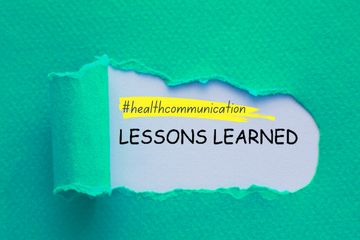You’re reading Lessons Learned, which distills practical takeaways from standout campaigns and peer-reviewed research in health and science communication. Want more Lessons Learned? Subscribe to our Call to Action newsletter.
While quality research is crucial for policymaking, limited opportunities exist for researchers to directly influence policymakers. The SciComm Optimizer for Policy Engagement (SCOPE) intervention was designed to bridge this gap by fostering relationships between researchers and policymakers. A randomized controlled trial was designed to test how the SCOPE intervention influenced legislators’ use of COVID-19 related research language on Facebook, Twitter, Medium, and YouTube between April 2020 and March 2021 (DOI: 10.1186/s13012-023-01268-1). The trial randomized 3,034 state legislators sitting on health committees to receive the intervention, and another 1,016 legislators to a control group. Policymakers in the intervention group were connected to researchers through email and provided with clear, jargon-free briefs by researchers, which the study team assisted the researchers in creating. The briefs contained timely information relevant to the pandemic, including public health information about topics such as mask wearing, and information about related social issues, such as workforce impacts.
What they learned: Legislators in the intervention group produced 24% more social media posts with COVID-19 research language than the control group. A legislator’s professional capacity, quantified through data such as number of staff, was also related to the amount of research-based social media posts.
Why it matters: Public trust in scientists has declined in recent years, making relationship building between scientists and people with social and political influence more important than ever. This trial demonstrated that fostering relationships between researchers and state legislators can make a measurable impact on how legislators use research as an information source in public discourse.
➡️ Idea worth stealing: To increase policymakers’ use of research, foster mutual relationships that help both parties meet their needs. When timely information is needed, provide policymakers with clear, jargon-free briefs that will help them speak with constituents.
What to watch: How researchers learn to make their work more responsive to the informational needs of the legislators and the larger public.




